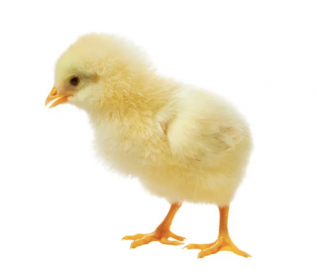Having the proper temperature in the floor and house is very important to ensure that all birds start eating food and water as soon as possible after moving them from the incubator to the house where they will be raised.
Content available at:
Español (Spanish) Português (Portuguese (Brazil))
The early feeding debate continues to be of great value to emphasize the importance of getting an entire group of chicks off to a positive start with proper feeding and the proper rearing of day-old chicks.
This is considered an important area in the starter phase, which has generally been addressed to emphasize the importance of producers preparing houses for the birds before their arrival.
Having the proper temperature in the floor and house is very important to ensure that all birds start eating food and water as soon as possible after moving them from the incubator to the house where they will be raised.
This moment is well known and accepted by the commercial poultry industry as one of the most important moments in raising animals.

However, there are situations where feed and water are not immediately available to the chicks, such as prolonged transport from the incubator to the farms. In these cases, food supplements are offered to all chickens while they are in the shipping boxes to keep them until they are placed in the houses.
However, these situations are unavoidable, and all chicks are treated evenly to keep them hydrated and ready to respond when they reach their destination.
Although chick growth and development have been repeatedly shown to be delayed as the time to access food and water increases, there are other factors to consider when discussing when newborn chicks should start to eat and drink.
The day-old chick (Gallus gallus domesticus) is a precocial chick, which means that they are mobile and covered at the bottom at the time of hatching, so they can keep their bodies reasonably warm.
Chicks hatched in the wild
In the wild, precocial chicks try to synchronize their time of birth through a process called ‘click,’ where the chicks begin to
Subscribe now to the poultry technical magazine
AUTHORS

Layer Longevity Starts at Rearing
H&N Technical Team
The Strategy for a Proper Infectious Bronchitis Control
Ceva Technical Team
Elevate Hatchery Performance with Petersime’s New Data-Driven Incubation Support Service
Petersime Technical Team
Maize and Soybean Meal Demand and Supply Situation in Indian Poultry Industry
Ricky Thaper
Production of Formed Injected Smoked Chicken Ham
Leonardo Ortiz Escoto
Antimicrobial Resistance in the Poultry Food Chain and Novel Strategies of Bacterial Control
Edgar O. Oviedo-Rondón
GREG TYLER INTERVIEW
Greg Tyler
Insights from the Inaugural US-RSPE Framework Report
Elena Myhre
Newcastle Disease: Knowing the Virus Better to Make the Best Control Decisions. Part II
Eliana Icochea D’Arrigo
Avian Pathogenic E. coli (APEC): Serotypes and Virulence
Cecilia Rosario Cortés
The Importance of Staff Training on Animal Welfare Issues in Poultry Industry
M. Verónica Jiménez Grez
Rodent Control is a Key Factor in Poultry Biosecurity and Sustainability
Edgar O. Oviedo-Rondón